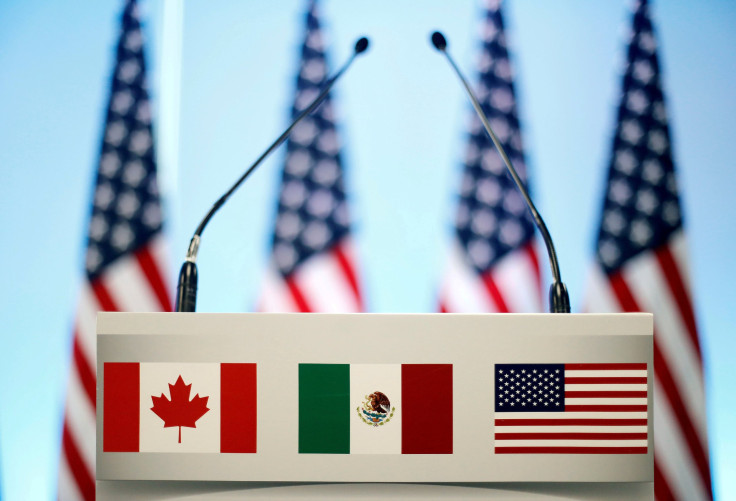US And Mexico Put Off NAFTA Talks Until Wednesday, Autos Eyed

U.S. and Mexican officials postponed ministerial talks aiming for a breakthrough in the revamp of the North American Free Trade Agreement (NAFTA) until Wednesday, although one member of the incoming Mexican government met U.S. officials on Tuesday.
Since restarting last month, the talks have focused on ironing out differences between Mexico and the United States which cut to the heart of U.S. President Donald Trump's complaint that NAFTA has hollowed out U.S. manufacturing to Mexico's benefit.
Trump has threatened to withdraw from the 24-year-old accord if it is not reworked to his satisfaction. He hopes he can reduce the U.S. trade deficit with lower-cost Mexico and claw back jobs, particularly in the automotive industry.
Canada has been waiting for the Mexican and U.S. teams to reach common ground on autos before rejoining the negotiation.
U.S. and Mexican officials say they will push for a deal on reworking auto industry rules that could open the door for Canada to return to negotiations soon.
Ministerial talks were expected on Tuesday, but Mexico's top trade official, Economy Minister Ildefonso Guajardo, would not meet with U.S. Trade Representative Robert Lighthizer in Washington until Wednesday, the Mexican ministry said.
But Jesus Seade, designated chief negotiator of Mexican President-elect Andres Manuel Lopez Obrador, who is due to take power in December, met Lighthizer whom he has known for years.
Entering talks, Seade said the teams were making "good progress" and "coming to the end" of their discussions. He expected bilateral issues to be resolved by early next week.
A Canadian government source said there was "nothing to report for the moment" on Canada's return to the talks.
Trump's son-in-law and adviser Jared Kushner also attended the talks with Seade on Tuesday. Kushner has been a regular participant in the NAFTA discussions.
Talks to rework NAFTA, which underpins the bulk of foreign trade in North America, have ground on for more than a year. Discussions stalled ahead of the July 1 Mexican election as negotiators failed to make a decisive breakthrough.
The three sides have also yet to agree on future dispute resolution mechanisms, while Mexico and Canada oppose a U.S. demand for a "sunset" clause that would force a renegotiation of NAFTA every five years and could hinder long-term investment.
BILATERAL ISSUES
Though NAFTA is a trilateral deal, a Mexican source said there are issues that are really "bilateral" between Mexico and the United States. In rules of origin for autos, "Mexico clearly had to look for flexibilities because Canada was relatively comfortable with the original (U.S.) proposal," the source said.
The rules governing regional content in automobile manufacturing have been one of the biggest sticking points between the two sides.
The United States and Mexico are close to a deal to increase North American automotive content thresholds, with substantial requirements for content produced in high-wage areas.
That is expected to lift the regional content requirement for NAFTA-made vehicles to at least 70 percent from 62.5 percent now, industry sources say. It will also likely require that some 40 percent of the value come from high-wage locations paying at least $16 an hour, meaning the United States and Canada.
Mexican and U.S. negotiators are close to agreeing a five-year phase-in period to implement the changes, the source said.
Still, foreign automakers with U.S. plants oppose the move to raise the amount of regional content, and their objections could hamper progress at the talks.
Carmakers including Toyota Motor Corp, Volkswagen AG and Hyundai Motor Co, wrote to trade-focused members of U.S. Congress expressing their concern.
Mexico's Guajardo last month expressed hope that there could be a preliminary NAFTA deal by the end of August, but he has since appeared to pull back from that position.
© Copyright Thomson Reuters 2024. All rights reserved.





















